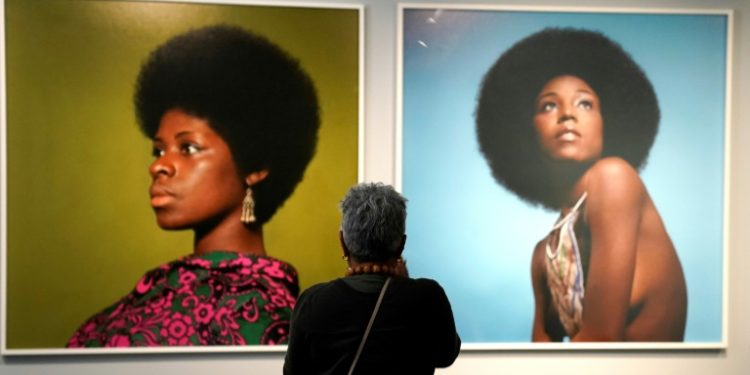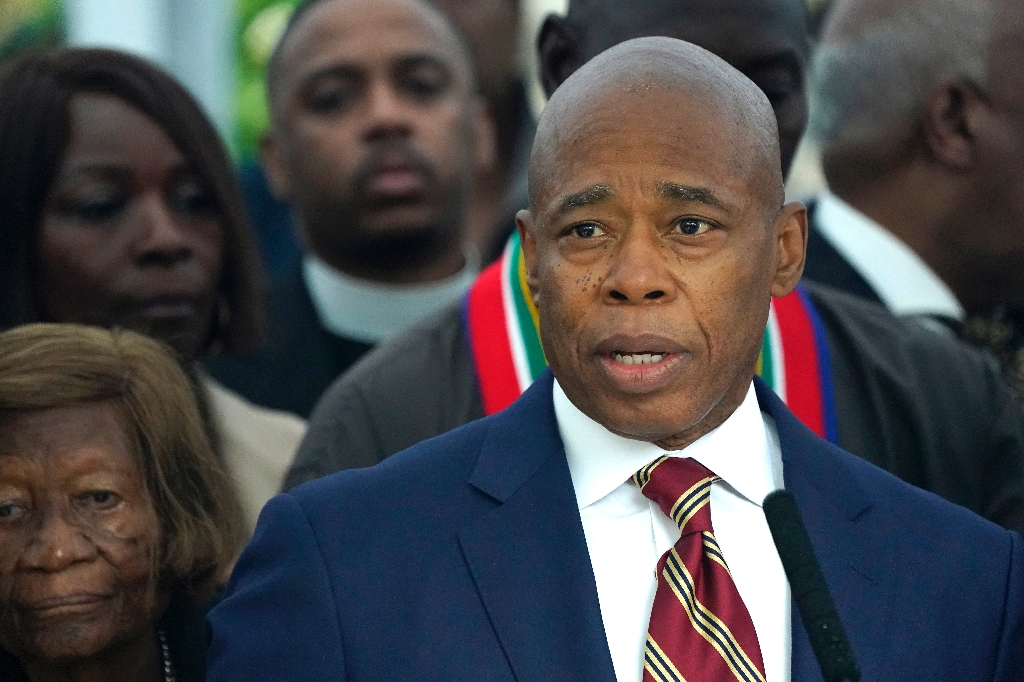New York (AFP) – Alicia Keys and Swizz Beatz are American music aristocracy, among the most celebrated artists of their generation. Now they have brought together leading artworks from the African-American community and the Black diaspora for a groundbreaking show at the Brooklyn Museum in New York.
The show is titled “Giants” for the stature of the works it displays, but also because “we want you to see the giants on whose shoulders we stand” explains Keys, behind Grammy award-winning “Fallin'” and “Empire State of Mind” which also won her Recording Academy recognition along with collaborator Jay-Z.
New York cultural icon Jean-Michel Basquiat, photographer Malik Sidibe, and Gordon Parks who documented segregation and the civil rights struggle in the United States are front and center. Living artists are also on view, including Kehinde Wiley, renowned for his portrait of Barack and Michelle Obama as much as for reimagining traditional Western artistic styles with African subjects.
Botswanan transplant to the US Meleko Mokgosi’s lifelike fresco “Bread, Butter and Power” which explores the relationship between power and gender on the African continent, also makes the cut for “Giants.” Images of the “Black is Beautiful” movement captured by Kwame Brathwaite, who died last year, are among the works given space by Keys and Swizz Beatz, as is work by Jamel Shabazz who chronicled the evolution of hip-hop in New York.
Bronx-born Swizz Beatz, an acclaimed DJ and producer, hit the big time before his 20s, launching the career of rapper DMX. – ‘We doubled down’ – It was at that time that he began to amass some of the artworks that pepper the show, with Swizz Beatz credited with bolstering emerging Black artists who have attained fame in recent decades. Among other artists on show is Ernie Barnes, an American football star and painter whose acrylic on canvas “Sugar Shack” featured on Marvin Gaye’s “I Want You” which brought in a stunning $15.2 million at auction in 2022 — ten times more than its estimate.
“We collect artists from all over the world. The reason why we doubled down on artists of color, Black and brown, is because our own community wasn’t collecting these giants,” Swizz Beatz said in a publicity video. The exhibition is testament to how storied museums are seeking a younger, more diverse audience.
“Within art history, there still tends to be narratives that are focused in kind of Eurocentric histories,” said Kimberli Gant, curator of modern and contemporary art at the Brooklyn Museum. “Most museums are really grappling with the fact that that has very much infused how they’ve collected over generations — if not centuries.” They’re going about trying to shift that…through the exhibitions are presenting to the artworks they’re acquiring, to really show that the world is much more complex. It’s much messier.”
When “Giants” goes on public view Saturday, a retrospective exhibition centered on filmmaker Spike Lee and the cross-pollination between his work and that of other Black creatives will come to an end at the Brooklyn Museum.





